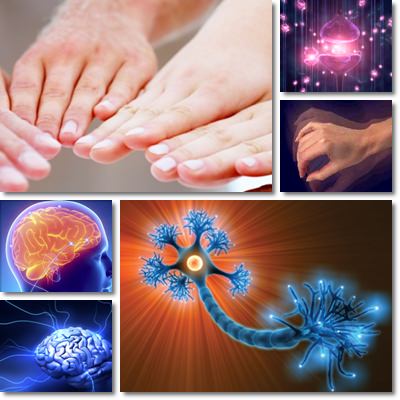Spasmophilia is a syndrome characterized by the involuntary contraction of various muscles in the body. Eye or eyelid twitching, leg muscle spasms such as twitching in the thighs, foot or hand numbness, pins and needles sensations in the legs or muscles of the back, abdominal muscles cramps or any other form of involuntary muscle contractions, twitching or tremors brought upon by no apparent physiological reason constitute spasmophilia.
Basically, spasmophilia refers to involuntary muscle contractions in the form of spasms, cramps, twitching, tremors, pins and needles etc. originating in various areas of the body, like the shoulders, back, abdomen, head or thigh, lasting anywhere from seconds to minutes or hours and inducing a pain sensation of varying intensity. Lack of sleep, an improper diet, bad lifestyle habits, nutritional deficiencies, various medical conditions may all cause spasmophilia.

Most people experience muscle spasms a great number of times throughout their lifetime, often without being capable of pinpointing the exact reason for them happening. While some neglect the situation from the beginning, waiting for the spasms to pass on their own, others panic, thinking they are suddenly and irrecoverably ill. Research on spasmophilia causes reveals the condition can be triggered by a variety of factors related primarily to lifestyle.
I experienced cramps, needles and pins or numbness in my legs whenever I maintained a certain position for a prolonged period of time (legs beneath me, for example). The sensations are a result of inadequate blood flow to the muscles of the legs due to a bad sitting position. I also often experienced twitching in my thighs or twitching of the eyelids.
According to specialists, this form of spasmophilia may be a result of a poor magnesium intake which directly affects the transmission of electrical impulses from the neurons (brain nerves) to muscles, resulting in poor muscle activity and muscle spasms. In my case, after supplementing with magnesium for just a couple of weeks, the eyelid and thigh twitching that had bothered me my entire life disappeared completely.

Avid coffee drinkers may also experience some forms of spasmophilia as a result of the diuretic properties of the beverage. Coffee basically dehydrates and contributes to loss of dietary minerals and electrolytes, particularly calcium, magnesium and potassium. According to some researchers, muscle cramps and spasms may also be a result of mineral deficiencies, particularly calcium, magnesium and potassium deficiency.
As mentioned above, magnesium deficiency results in poor communication between brain cells called neurons and muscles. Neurons transmit electrical impulses to muscles, telling them to contract and generate movement. In the case of a deficiency, the electrical impulses are not sent properly to muscles, hence the involuntary contractions. At the same time, potassium, an electrolyte which helps regulate body fluids, ensures the medium of transmission of these impulses. As a result, a nutritional deficiency may engender spasmophilia.
Painful muscle cramps and twitching are very common forms of the condition. Almost every muscle in our body is susceptible to one of these two forms. In the video below you can see how twitching, also called fasciculation, occurs.
Spasmophilia can be worsened by several factors, most of which promote dietary mineral deficiencies. Coffee, alcoholic beverages or caffeine based beverages all engender mineral deficiencies and may thus contribute to muscle cramps, spasms and twitching, especially when they are consumed in great amounts or regularly. Sodas, fizzy drinks or soft drinks contain phosphoric acid, a compound which reduces mineral absorption at the intestinal level. This promotes deficiencies as well and may be a cause for spasmophilia.
Excess sugar consumption may also contribute to involuntary muscle contractions and so can stress and sleep deprivation. The stimulating effects of sugar are believed to be responsible for spasmophilia occurrence, while insufficient sleep results in poor nervous system function and inadequate muscle activity. Stress, sleeping late, waking up early, not sleeping enough, disturbed sleep conditions such as insomnia all take their toll on our health and can increase the probability, frequency and possibly severity of muscle spasms, cramps, twitches, numbness, pins and needles.
Moreover, stress is a main cause of mineral deficiencies. When under stress for long periods of time, our body works harder to cope with it and thus consumes more nutrients, hence the higher risk for deficiencies. Many experts agree that stress can easily engender vitamin and mineral deficiencies, especially B vitamins, calcium or magnesium deficiency. For example, a severe magnesium deficiency is known to put us at risk for many mild to severe health issues ranging from depression to bone and cardiovascular problems.
Other causes for muscles cramps, fasciculations and tremors are diuretics, dehydration, diarrhea, certain medication such as nausea, motion sickness, antihistamine or asthma medication, sedatives, ADHD medicines, nerve compression, injuries to the affected muscles, strenuous exercise routines which encourage intense sweating (through which we lose nutrients), alcoholism, etc. Alcohol, diarrhea and diuretics, for example, cause dehydration which, in turn, leads to loss of dietary minerals and subsequent deficiencies resulting in poor nerve and muscle functions.
Known causes and triggers for spasmophilia
Involuntary muscle contractions can be very painful. The longer they take, they more painful they may be. Knowing what causes them is pivotal for reducing their occurrence. So here is a list of the main factors causing muscle cramps, fasciculations, tremors, needles and pins and numbness sensations:
- Stimulants. This includes coffee, sodas and other caffeinated drinks, black and green tea.
- High sugar intake. Sugar is a powerful stimulant as well.
- Draft or heat. Air currents directly affect muscle function, while hot weather induces dehydration and mineral loss.
- Mineral deficiencies, notably magnesium, potassium and calcium. Find out more about magnesium forms and which to choose.
- Phosphoric acid consumption, responsible for dietary minerals deficiencies.
- Sleep deprivation. Having a sleeping schedule may help manage spasmophilia caused by lack of sleep.
- Stress and anxiety. Both stress and anxiety can indirectly encourage mineral deficiencies.
- Blood circulation problems affecting normal muscle function.
- Inadequate position when sitting, standing, exercising, etc. which may restrict blood flow to muscles.
- Medication: asthma, antihistamine, ADHD medication, sedatives, diuretics, etc.
- Injury or difficult exercise routines.
- Alcoholism. Chronic alcoholism causes severe nutritional deficiencies.
- Illnesses such as multiple sclerosis, which is rare for mere muscle spasms, cramps and twitching.
What to do about spasmophilia
Managing and treating the condition involves addressing the above risk factors accordingly. Some people might have to cut down on coffee, green tea, sodas, etc. or completely exclude them from their diet. Reducing refined sugar and alcohol intake is a must. Treating potential injuries, exercising correctly, choosing the right exercise routine and an adequate environment (no draft, for example) are also strong recommendations.
Keeping hydrated, eating right and even supplementing with dietary minerals such as magnesium and potassium might be the solution for other people dealing with the condition. Including foods rich in magnesium as well as foods rich in potassium in your diet is ideal. Reducing stress levels is key for an overall great health, not only for treating spasmophilia. As far as medication is concerned, always talk to your doctor before making any decisions. Your doctor is the only one at liberty to prescribe, change your medication and establish correct doses.
It is important to monitor your health and potential changes. Keep track of the frequency, severity and recurrence of muscle spasms, cramps, twitching, numbness, needles and pins sensations and report to your doctor any significant changes or worries. At the same time, address the problematic areas in your lifestyle to see which one might be responsible for the spasmophilia symptoms you are experiencing. After cutting down on my coffee and sugar intake and significantly increasing my magnesium and potassium daily intake I can say spasmophilia symptoms such as muscle spasms, fasciculations and tremors are a thing of the past for me. What other remedies do you recommend?
